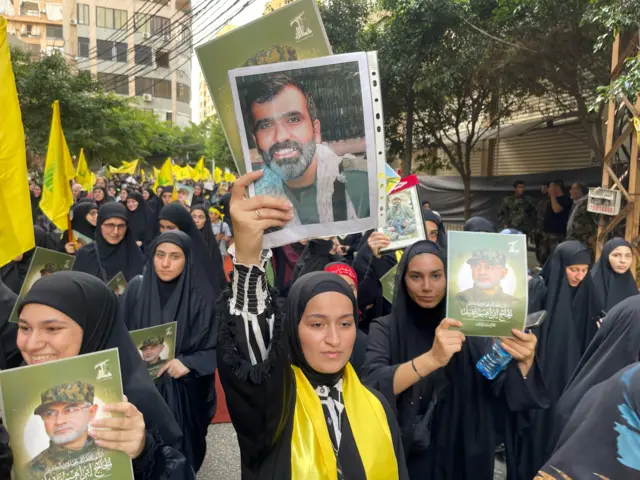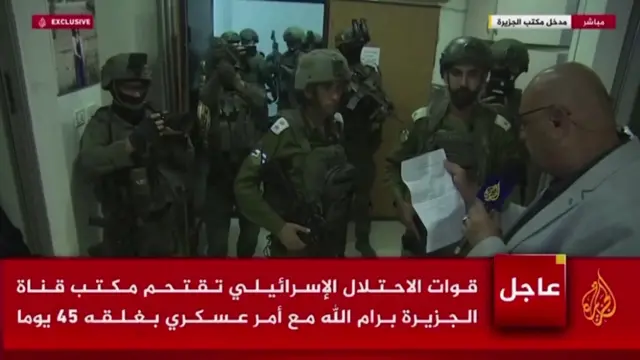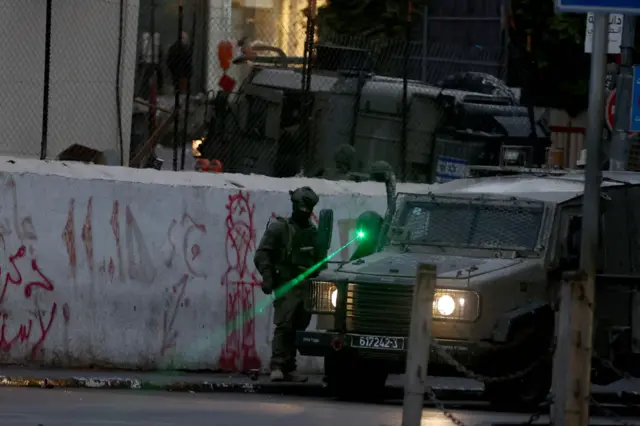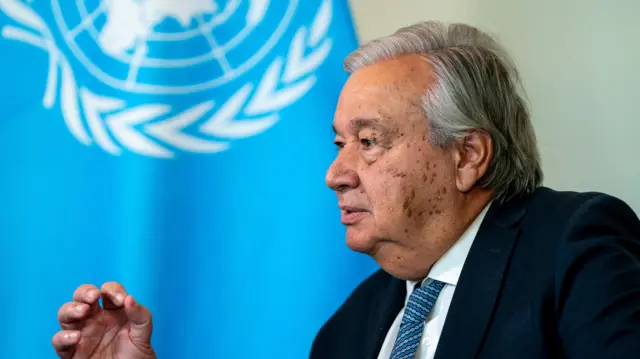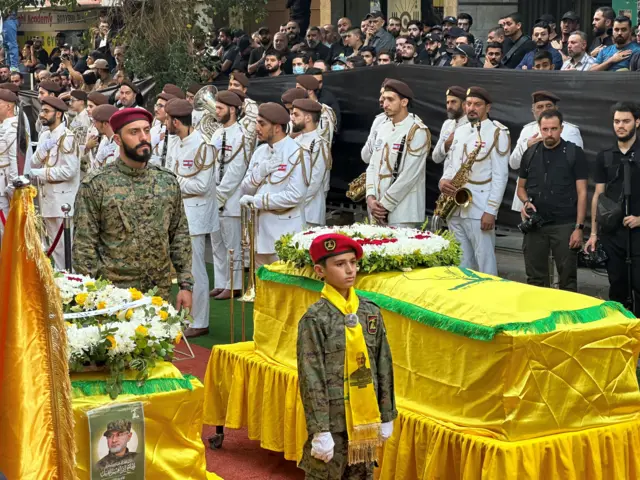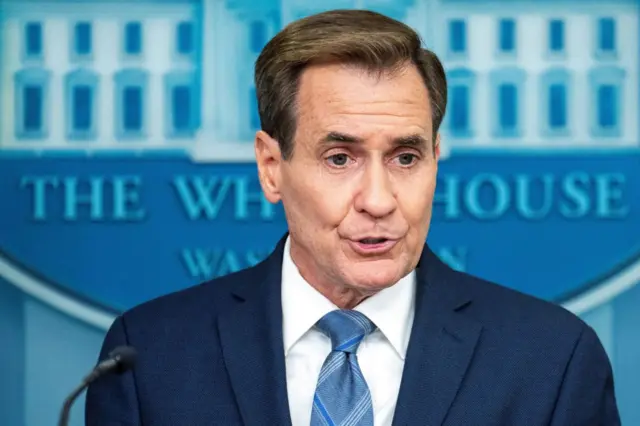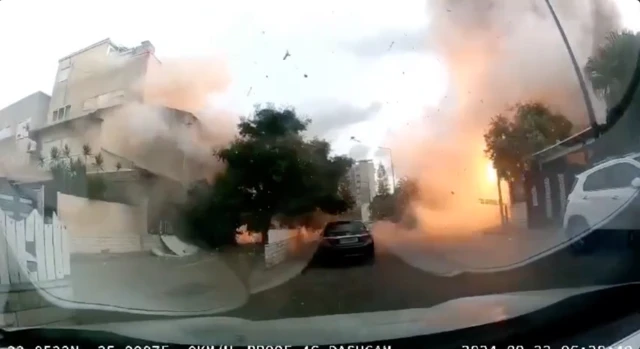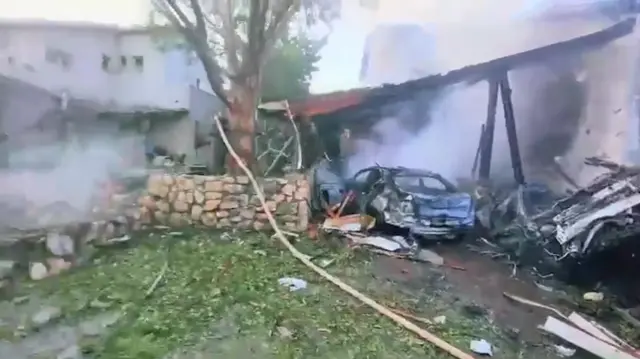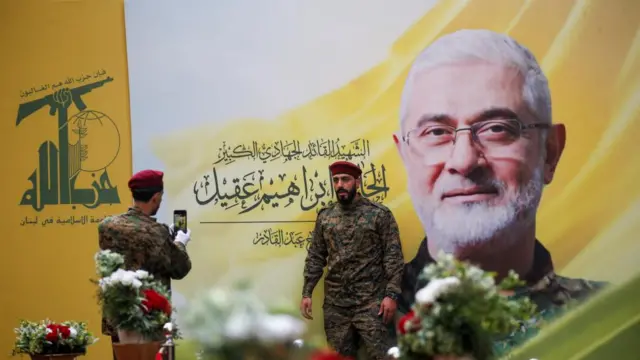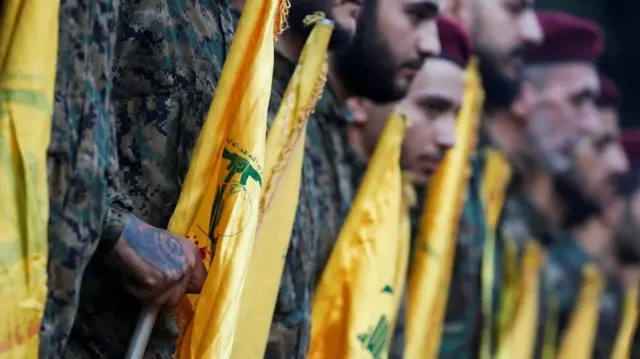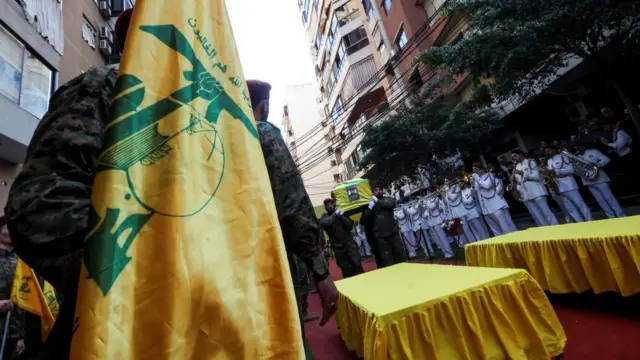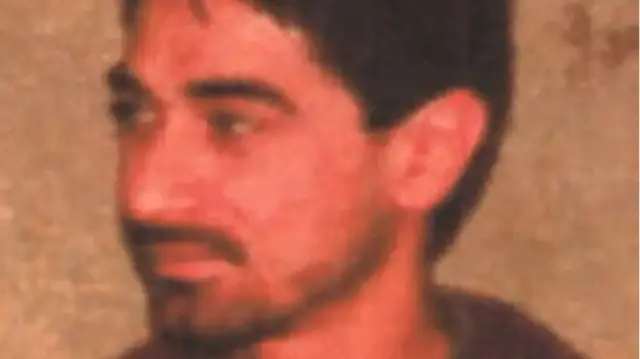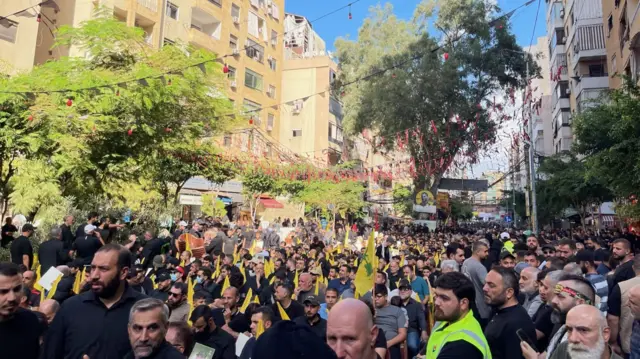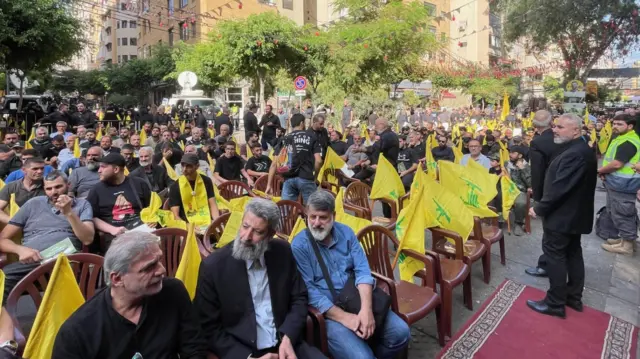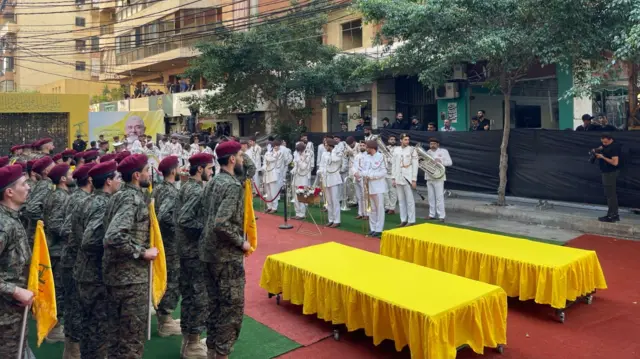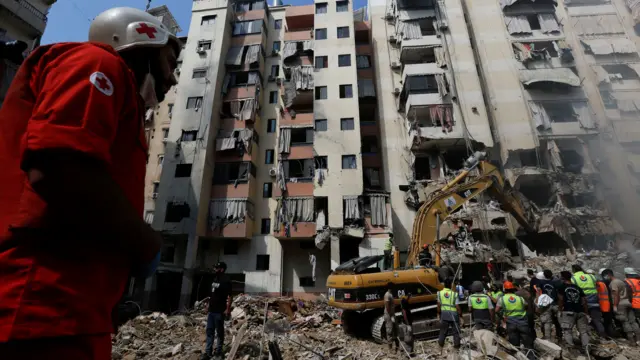Both Hezbollah and Israel show no signs of backing downpublished at 18:57 BST 22 September 2024
Cross-border fighting between Israel and Iranian-backed Hezbollah has continued to escalate. Here’s a quick summary of what happened today:
- Overnight, Lebanon-based Hezbollah launched 150 projectiles into Israel, according to the Israeli military, with some reaching further south than any attack from Lebanon since 8 October 2023
- Israel carried out air strikes in southern Lebanon, which it said destroyed thousands of Hezbollah's rocket launchers
- Three people were reported killed in Lebanon, with Hezbollah confirming two of its fighters died
- Hezbollah held a funeral in Beirut for one of its senior commanders Ibrahim Aqil, who was killed in an Israeli air strike in the city on Friday
- One of the group's leaders said Hezbollah had opened a new chapter and more Israeli residents would be pushed from their homes
- Israeli Prime Minister Benjamin Netanyahu vowed to take whatever action necessary to return around 60,000 people evacuated from the north, while Israel's military chief said Hezbollah would keep getting hit until they can get home
We'll be pausing our live coverage shortly, but you can read more about Israel and Hezbollah being urged to step back from "catastrophe" in the region.
This page was edited by Sean Seddon and Adam Durbin, with reporting from Hugo Bachega, Orla Guerin and Nafiseh Kohnavard in Beirut, and Mallory Moench and Jessica Rawnsley in London.
